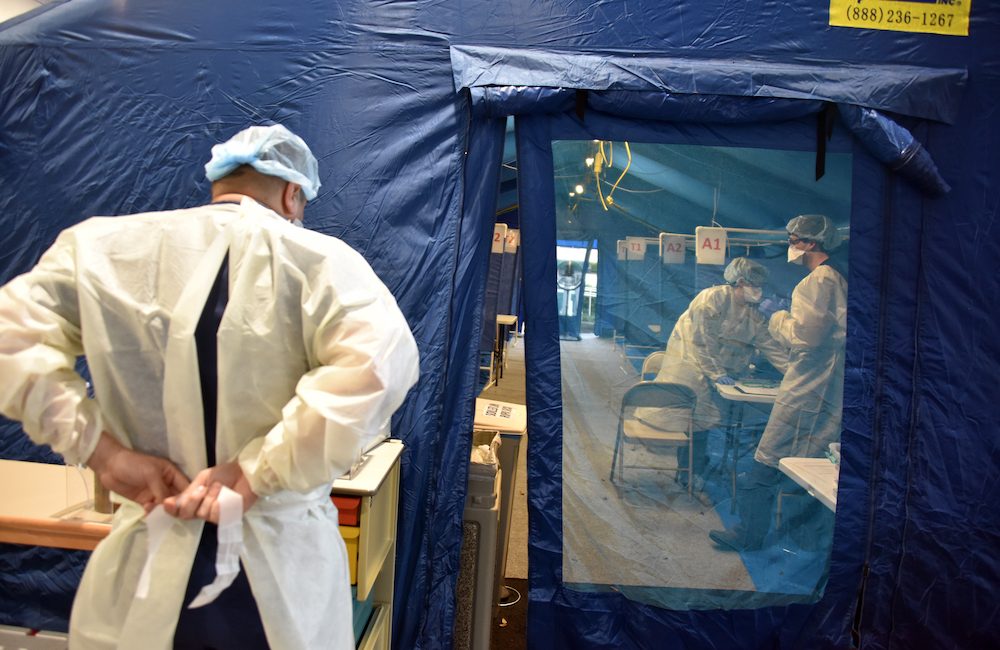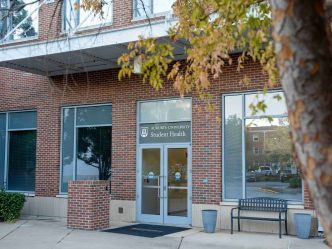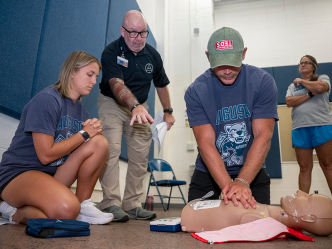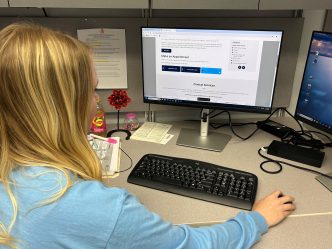The World Health Organization has declared monkeypox a public health emergency of international concern, and the Centers for Disease Control and Prevention reports, as of Aug. 16, there are over 12,000 confirmed cases in the U.S. — including 1,013 in Georgia.
This gives Georgia one of the highest case counts in the country.
With Augusta University Health recently reporting its first positive monkeypox case, community members are encouraged to stay informed.
What is monkeypox?
Monkeypox is caused by monkeypox virus, a member of the Orthopoxvirus genus in the family Poxviridae. It is not related to chickenpox.
The monkeypox virus can spread from person to person through direct contact with the infectious rash or during intimate physical contact such as kissing, cuddling or sexual intercourse.
What are the symptoms?
Monkeypox typically presents with fever and swollen lymph nodes.
This is followed or accompanied by the development of a rash which can last for two to three weeks. The rash can be found on the face, palms of the hands, soles of the feet, eyes, mouth, throat, groin, and genital and/or anal regions of the body. The rash may initially look like pimples or blisters, and may be painful or itchy.
What is a “public health emergency of international concern”?
It’s an official designation by the World Health Organization indicating there is a multi-country outbreak.
Declaring a “public health emergency of international concern” constitutes the highest level of global public health alert, and can enhance coordination, cooperation and global solidarity.
How is monkeypox transmitted?
Monkeypox is not transmitted like COVID-19 and requires skin-to-skin or other close surface contact to transmit to others. Unlike COVID-19, the flu or chickenpox, this means far lower risk to persons who are in a room with someone with monkeypox, as long as they don’t directly touch the infected individual.
Who is most at risk?
In a multinational study of more than 500 cases that were reported between April and June, researchers found that 98 percent of monkeypox cases were among men who have sex with men. It is important to note that it is not sexual orientation, but behavior that influences the risk of acquiring monkeypox.
Augusta University and the greater national health community are dedicated to reducing stigma amid the current outbreak.
Do we need to develop vaccines?
Fortunately, no: A vaccine called JYNNEOS already exists for monkeypox, and it consists of two doses administered four weeks apart. JYNNEOS has been approved by the U.S. Food and Drug Administration since 2019.
At this time, only those who believe they have been exposed to monkeypox or have symptoms of the virus should get vaccinated.
See more: Augusta University expert shares what you need to know about monkeypox
How long are people contagious?
A person with monkeypox can spread it to others from the time symptoms start until the rash has fully healed and a fresh layer of skin has formed. The illness typically lasts 2-4 weeks.
What don’t we know yet about monkeypox?
Scientists are still researching:
- Whether the virus can be spread when someone has no symptoms
- How often monkeypox is spread through respiratory secretions, or when a person with monkeypox symptoms might be more likely to spread the virus through respiratory secretions
- Whether monkeypox can be spread through semen, vaginal fluids, urine or feces
How can I stay safe?
Monkeypox is most commonly transmitted through close, skin-to-skin contact. Therefore, you should:
- Avoid close, skin-to-skin contact with people who have a rash that looks like monkeypox.
- Do not touch the rash or scabs of a person with monkeypox.
- Do not kiss, hug, cuddle or have sex with someone with monkeypox.
- Avoid contact with objects and materials that a person with monkeypox has used.
- Do not share eating utensils or cups with a person with monkeypox.
- Do not touch the bedding, towels or clothing of a person with monkeypox.
- Wash your hands often with soap and water or use an alcohol-based hand sanitizer, especially before eating or touching your face and after you use the bathroom.
Augusta University students enrolled in clinical training should look to their program director for additional safety guidance for interactions with patients and peers.
How can I get tested and vaccinated?
If you are high risk for monkeypox infection and need vaccination, or have developed symptoms and need testing, both are available via the Georgia Department of Public Health.
The closest public health district office to Augusta University is the East Central Health District located at 1916 North Leg Road, Augusta, Georgia 30909. Visit their website for detailed vaccine information.
Augusta University students who feel they may have symptoms of monkeypox should call Student Health Services at 706-721-3448 to make an appointment for an evaluation. The clinic does not provide testing or vaccination, but can refer students to AU Health or the local health department.
Information for this story was compiled from the Centers for Disease Control and Prevention, the World Health Organization and the Georgia Department of Public Health.
 Augusta University
Augusta University




